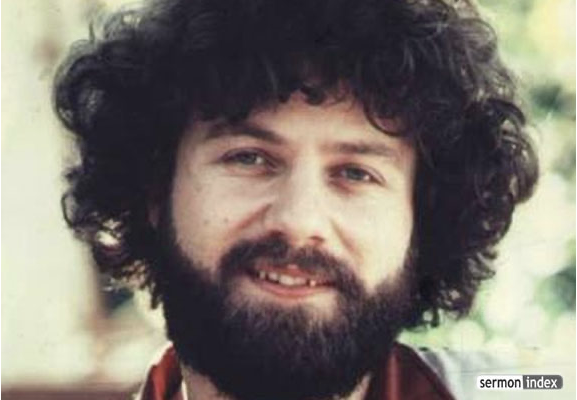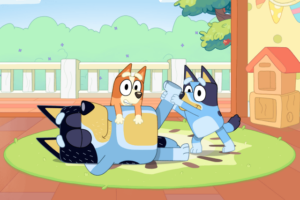Part of the heritage of the Protestant Reformation in the life of my family is that I spent the last four years giving my kids less time. This past Spring, I graduated with an MA in New Testament Studies from Acadia Divinity College. Single parenting meant that I did school part time but my kids spent the last four years getting four years older. In fact, they spent them going through some of the most important years of their early development, and I chose to give them less of myself so that I could give time to school. For me, a large share of this decision rests on a lesson from the life of a feisty medieval monk.
Vowels or Vehicles
I had known these moments were coming but had not expected that they would have happened in my very first week. One of the first classes I took was Introductory Hebrew. During that first week four year ago, I was merely tackling the alphabet and learning the vowels. At that time my youngest, Samuel, was two years old and was playing exclusively with matchbox cars. The repeating stages of playing with Sam were as follows:
- Sam gives me a vehicle of some kind
- Sam watches me drive this vehicle and make fantastic and realistic sound effects
- Sam’s eyes widen as he sees the potential that he has somehow tragically overlooked in this toy
- Sam requests that I return the vehicle to his possession
As a dad I loved this because the small amount of energy it took me to perpetuate this cycle brought my son great joy. So when Sam asked me to stop studying to come play, he was not asking for all that much. It was probably the fact that my engine sounds and my attempts to pronounce Hebrew sounded very similar (there is a lot of ‘throat’ in either case) but there was the small hand patting my leg, bright eyes meeting mine, one hand pointing to the rug and another hand opening and closing in the universal sign of “c’mon.”
The internal crisis, while not overwhelming, was entirely upon me. Can I actually justify robbing my two-year-old son of playtime to learn Hebrew? Is this truly the best use of my energy and attention?
The Legacy of Luther
Martin Luther’s awakening to the gospel was a major catalyst in the Reformation. His entrance into freedom, which contributed to the gospel breaking through again in Europe, came through his study of the Greek New Testament. The truth had been encrusted under poor translation and made inaccessible. Both the story of Martin Luther’s awakening and the importance of original language study for the Reformation have been well told and need not be repeated here by me. But it seems clear that if Luther had not opened the New Testament in its original language, he would have remained in darkness.
The lesson I take from this is twofold. First, reading the Bible accurately is a matter of (eternal) life and death. Second, part of ensuring an accurate reading of the Bible is to learn to study it in its original languages. One of my main goals in my studies is to be able to do just that. If the Bible is what it says it is, I must do everything in my power to read it as best as I can.
Serving My Family, Serving My Church
Sam left the table disappointed. Being two he did not sulk for long as the next thing to cross his path engrossed his attention completely. But still, he left without me coming along because I chose Hebrew vowels over a toddler’s vehicles. I did not need to say no to playtime every time but by choosing to do this schooling I spent four years sending my kids away with unfulfilled expectations more often. The reason that I was willing to pay this price is because I aim to be part of a church that reads the Bible well, where my kids can grow up and hear the truth clearly and accurately.
There are some important qualifications to make. To fail as a father in order to succeed in reading Hebrew and Greek is to ultimately fail. As time and resources are given to learning, the transfers across ledger lines that mark out other God-given responsibilities need to be carefully accounted for. This is also not to suggest that the Bible cannot be read well in translation as one of the great legacies of the Reformation is the impetus to give the Bible to people in their own languages. Also, reading the Bible in its original languages is just one part of a bigger picture that includes history, theology, culture, community, and so on. We should be wary of letting the phrase “in the original this means…” become a sort of magical incantation on the lips of our pastors that lets the rest of us momentarily poke our heads through the curtain into the sanctuary of what the Bible ‘really says.’
But with all of that said, the church needs to value the study of the Bible in its original languages. Of course, not every Christian needs to carry a Greek New Testament to church. And of course those who do are not thereby higher up on a faithfulness-to-Jesus scale. We must guard against overstating the need for Greek and Hebrew as it is both ludicrous and perilous to suggest that pastors without ability in ancient biblical languages cannot shepherd well. But we do need, as part of our community, people to study the Scriptures in their original languages who can help protect us from error and draw us as deep as we can go into the fullness of what God says.
So do you need to start learning Greek or Hebrew? Probably not. But some do and the rest of us should recognize the valid and valuable place this has in the church. We can encourage our training institutions to train well in languages. We can support those whose temperament and ability draw them to the biblical languages. We can give due attention to those who have paid their dues in years of dedicated study rather than just those who have a book with buzz or an aesthetically pleasing blog. We can help protect our pastors’ study time by setting as part of our expectations of them that they will have significant time there each week. We can help to resource those who minister with tools that will help them read the Bible well.
To stand downstream of the Protestant Reformation is to value reading the Scriptures that God has entrusted to us in their original languages. This will have been a hollow celebration of the 500th anniversary of this event if we do not actually learn from it. In my own life, in what I have done so far and in what comes next, my prayer is that the costs of study will pay off by helping Sam to hear the truth that he most needs to hear. So lately, he has had to hear a lot of “hhh” (as I work on Hebrew) when he was used to hearing “vvrrooooom.”























